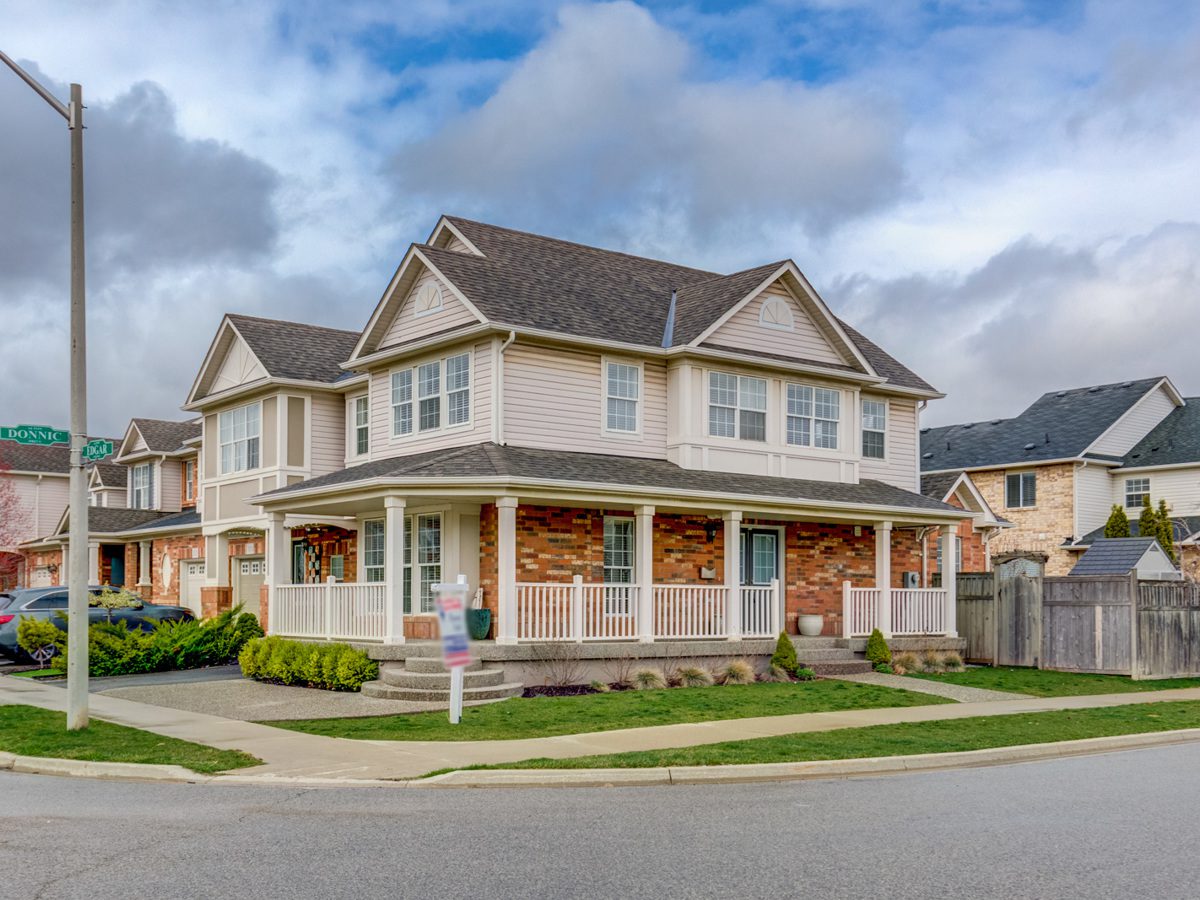January 27, 2023 | Buying
Should You Invest in a Freehold or Condo Unit?

If you’re getting started as a real estate investor, one of your first decisions will be whether to purchase a freehold property or a condo unit. Both can be viable long-term investments, and both have their own unique pros and cons. In this article, we’ll review what you need to know to give yourself the best chance for success no matter what the market is doing.
Setting realistic expectations and arming yourself with accurate and up-to-date information is the first step in the right direction. You’ll also want to work side by side with a real estate agent who understands your individual goals. Keep reading to learn how to decide which property type makes the best first-time investment property.
Want to stay up to date with the GTA real estate market? Subscribe here to get the latest stats and exciting new listings delivered straight to your inbox.
Real Estate Investing Favours a Long-Term Strategy
Since real estate prices can fluctuate, successful investing has always been more of a long-term game rather than trying to make a quick buck. Think of it this way: A residential property has value beyond its list price, which can drop in the short term.
But a house is more than just a commodity. It’s someone’s home! Imagine the worst-case scenario where the monetary value drops well below what you’ve paid for it. Everyone still needs a place to live and raise their family. That fact will never change.
Not everyone has the resources to buy a home, and many people don’t want the commitment. For that reason, there will always be high demand for rental units. And, as an investor, the income you receive from rental fees covers your mortgage payments so you can build equity by holding the property.
Whatever type of home you invest in, it all starts with a compelling offer. Find out how to make your offer stand out right here.
What Type of Property Should You Invest In?
If you’ve decided that real estate investing is right for you, the next step is to consider what properties are available and which best suits your resources and experience. Freehold and condo properties both have pros and cons.
A real estate agent with experience in working with investors can help you analyze the numbers to see what will give you the best outcome. For example, investing in a condo may cost less upfront. Still, you’ll need to determine if your projected rental income is enough to cover your expenses.
With a freehold residence, there are no condo fees to worry about. However, you still need to set aside a monthly budget to cover the ongoing maintenance and repairs.
There is no right or wrong answer between buying a freehold or a condo. But knowing your investment style will help you make a decision that works for you in the long run.
What You Need to Know Before Investing in a Freehold Property
A freehold property means you own the land and home outright, and there are no shared spaces. As the landlord, you are responsible for all repair costs, insurance, and property taxes. Legally, you’re also responsible for things like snow removal and lawn care. While in a condo, maintenance of common areas is typically handled by the building management.
Buying an investment property is a little different than buying a home. Find out more right here.
The Case for Condo Investing
Many tenants love the convenience condo-living offers. As an investor, a condo can be less work than a freehold property, but not always. For example, some condos cover snow removal, while others do not. Each building is different, and you always want to perform extensive research to know what will be expected of you.
Get a Status Certificate or Home Inspection
Requesting a status certificate before purchasing a condo can be one of the best steps to ensure a condo will be a worthwhile investment. Condo status certificates outline the rules and regulations of the building and give you insight into the accounting, reserve fund, and how management plans to budget for maintenance in the future.
An up-to-date status certificate can let you know if there is enough money for the upkeep of the building. If there’s ever a shortfall, a special assessment may be required.
A home inspection on a freehold property will help you identify any significant structural or mechanical issues with the property that may impact your decision to invest. Your real estate agent can help refer you to a lawyer to review the status certificate and home inspector to inspect the property before you commit to a purchase.
Can You Renovate Your Condo?
Since people live in close proximity, the rules for renovating a condo are different than those in a freehold. Any aesthetic changes to your personal space are typically permitted. For example, you are free to paint or upgrade your lighting fixtures to suit your tastes.
However, you’ll need to check with property management for bigger renovations in a condo to see what their procedures are for tradesmen and renovations. Typically only bonded/insured contractors are allowed to work in the condo and there will typically be a schedule that outlines the hours and days you can do the work. If you are in a highrise building you will also need to plan ahead to reserve the elevator to get material to your unit. Also, all structural changes must be approved by the building management.
The Importance of Having a Support Team
As an investor, finding and securing viable properties is only one part of the equation. Managing them is another topic altogether. Without support, this process can quickly become overwhelming.
However, maintaining your portfolio can be much less work once you have the right team in place. Hiring a property manager may reduce your monthly income but will free up much of your time by taking over the day-to-day operations of handling your properties.
How can a local real estate agent support you throughout your purchase? Find out more about my buying services right here.
How Your Realtor ® Can Help You Succeed
Your Realtor® is the backbone of your support team and can help minimize many of the stresses involved with being a landlord. They can also help you manage your investment from a financial standpoint.
First, you’ll determine how much you may earn in monthly rent. From there, you’ll factor in your expenses, including:
- The mortgage payments
- Property taxes
- Condo fees (if applicable)
- Maintenance and repair costs
- Vacancy costs
- Insurance
- Cost of property management
- Time and cost of finding and screening tenants
The Right Tenant is the Key to Long Term Success
Nothing can make or break your success as an investor more than finding the right tenant. This vital step can be a source of stress and worry for many investors, especially if you’re just starting out. But did you know that many real estate agents can actually help you find and screen potential tenants? We can perform extensive background checks and assess the suitability of your prospects to give you the best chance of a successful long-term venture.
If you’re ready to get started as an investor or add to your growing portfolio, information will be your most valuable resource. I am committed to providing honest and realistic answers to your questions and helping you achieve the best possible outcome in a changing market. Reach out today at damir@damirstrk.com or call 416.884.7925 to begin the conversation.

Get GTA Market Updates Delivered
Sign up to receive my newsletter here and get regular updates about local market changes, the latest listings, and more insider information.




